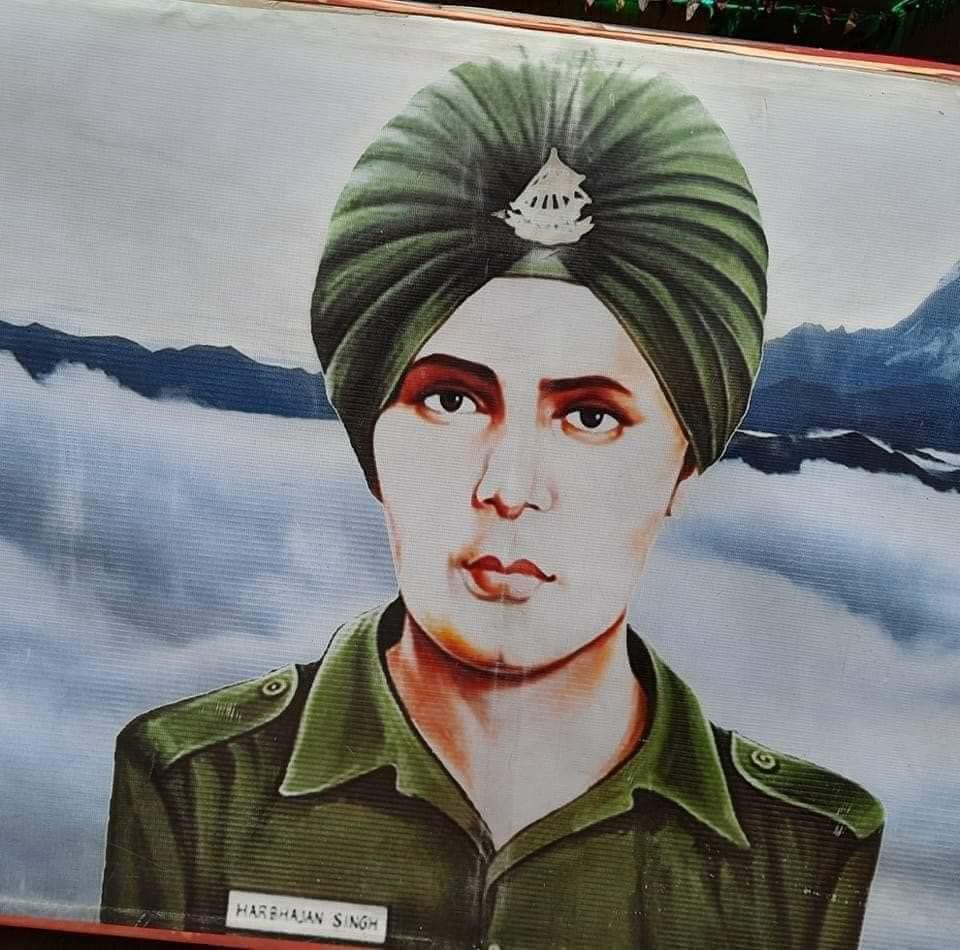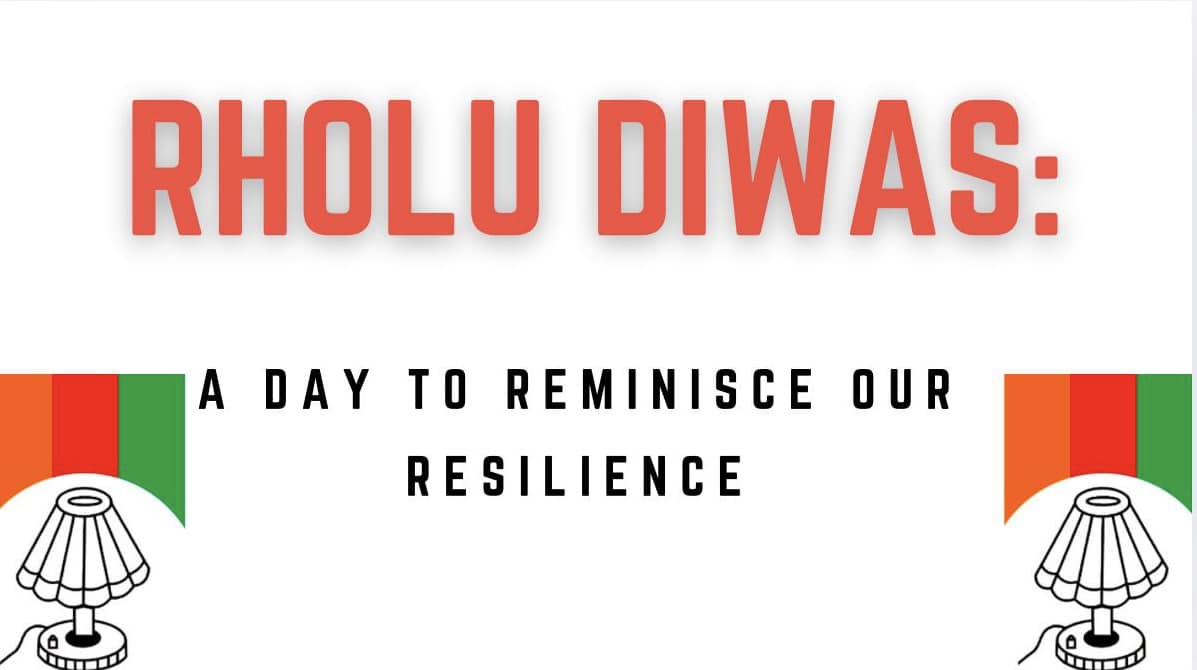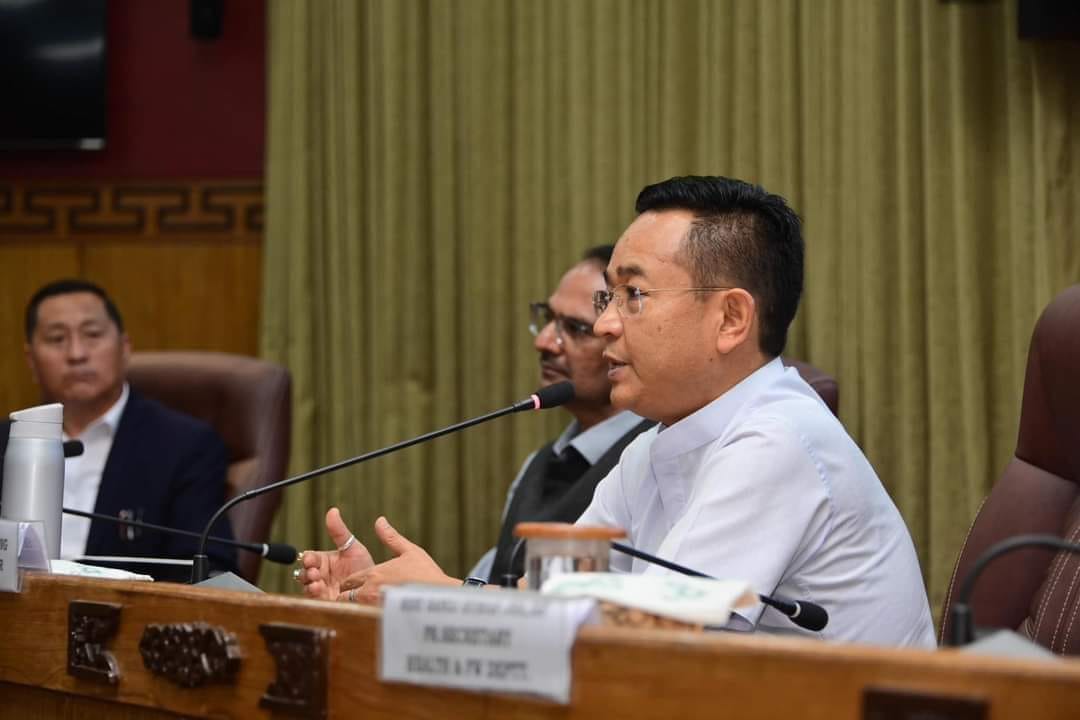
Pakyong, 30 Sep : Baba Harbhajan Singh served dutifully both in life and beyond at the Nathula border. Despite passing away in 1968 during his service in Sikkim, Baba Harbhajan Singh continues to fulfill his responsibilities at the Nathula Border that separates India and China in East Sikkim.
He is venerated by both the Indian and Chinese armies, with the Chinese reserving a chair for him during flag meetings.
Captain Baba Harbhajan Singh, born in Punjab in 1941, would have turned 77 today. Although he met his demise at the age of 27 at Nathula in Eastern Sikkim, according to legends, his commitment endures at the Nathula Border.

“Nathula Baba” Harbhajan Singh is a revered figure in the Indian Army and is often referred to as “Baba” by soldiers. He was a soldier of the Indian Army who is said to have died in 1968 near the Nathula Pass in the Sikkim region, which is a high-altitude mountain pass connecting India and China.
Harbhajan Singh is believed to have played a significant role in protecting the soldiers stationed in that area, even after his death. According to the legend, his spirit continues to guard and guide the soldiers in the challenging terrain of the Nathula Pass. He is considered a guardian deity by the soldiers who believe that he still patrols the border and helps in preventing any harm from befalling the soldiers.

There’s a shrine dedicated to Harbhajan Singh at Nathula Pass, which is visited by soldiers and civilians alike. It is believed that the offerings made at the shrine are accepted by his spirit. The Indian Army also continues to pay salary to Harbhajan Singh’s name, and his uniform and other belongings are maintained in his quarter as a mark of respect.
This story has become a part of the folklore and tradition of the Indian Army, and Harbhajan Singh’s legacy is honored as a symbol of dedication, duty, and protection. The tale of Nathula Baba Harbhajan Singh showcases the strong bond between soldiers and their commitment to safeguarding the nation, even beyond the boundaries of life.
Notable anecdotes about Saint Captain, relayed by the Army officials we came to know that at Nathu-La and Baba Mandir, include:
1. Baba forewarns soldiers of impending attacks, often with a lead time of three days, steadfastly protecting the international boundaries.
2. The customary flag meetings between India and China witness the Chinese army respectfully reserving a seat for Baba.
3. Baba Mandir currently comprises three rooms: an office, a storeroom, and a living quarters. The living room is meticulously arranged with all his necessities – bed, shoes, slippers, water bottle, crisply pressed uniform, and even an umbrella.
4. The room undergoes daily cleaning.
5. Occasionally, soldiers find crumpled bedsheets and muddy shoes in the room.
6. On numerous instances, soldiers have reported Baba’s continued presence in the camps and at his post.
7. Baba still receives a Major’s salary on a monthly basis.
8. He enjoys a biennial leave of 2 months.
9. Every 11th of September, his belongings are dispatched to his hometown. A train journey commences from New Jalpaiguri station in Siliguri, West Bengal.
10. A designated berth, bearing his name, remains unoccupied for the entirety of the journey.
11. A contingent of soldiers accompanies his belongings to his hometown.
12. The Army maintains heightened vigilance during Baba’s leave.
In the realm of dedication, some soldiers eternally endure.





